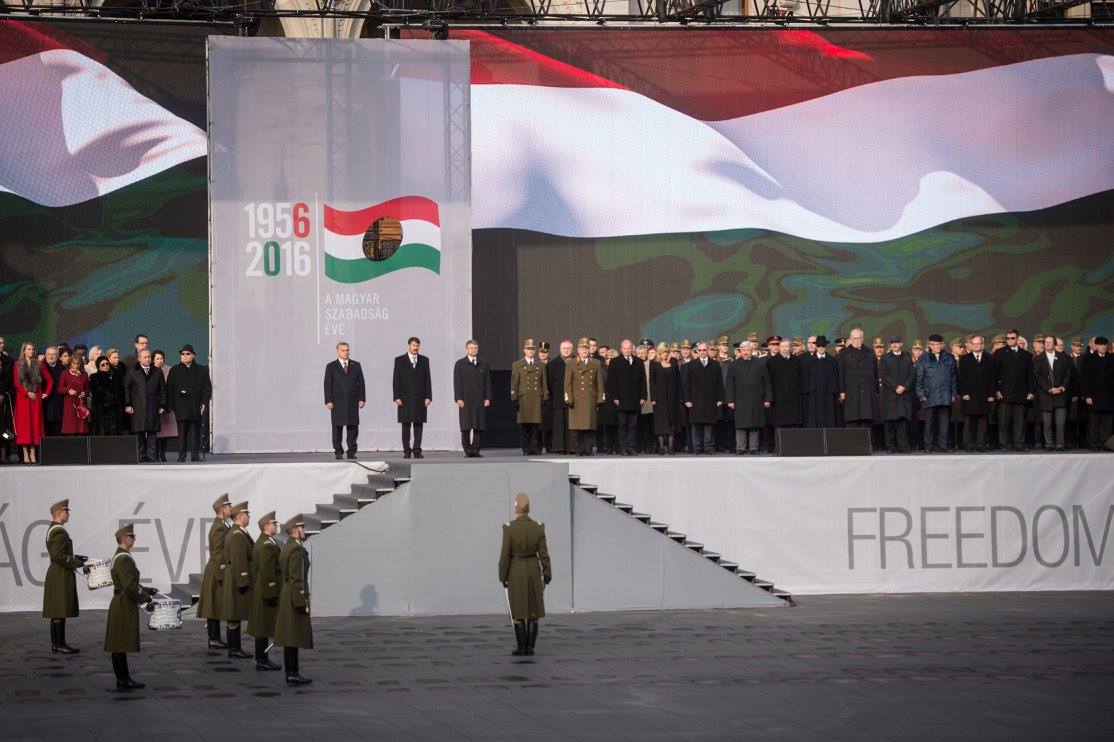Originally published in French on Omerta on December 12.
According to a survey published in Hungary on Monday, 72% of Hungarians oppose Ukraine’s immediate entry into the European Union. Their worries include threats to oil supplies, the unfair treatment of Hungarian companies, and the Hungarian minority’s deteriorating living conditions. Economic concerns also persist due to the influx of Ukrainian grain.
European Summit on December 14–15
The details of Ukraine’s EU accession process are expected to be on the negotiating table on Thursday and Friday in Brussels, where a summit of EU leaders will be held. According to Reuters, however, these negotiations could be postponed until March 2024.
All the media is pointing to a veto by Hungarian Prime Minister Viktor Orbán, although few bother to mention that Robert Fico’s Slovakia shares Budapest’s position on this issue. On the other hand, while other European leaders seem more open to talks with Ukraine, they only speak about it in very general terms, without being able to specify the agenda behind the negotiation process with Kyiv.
The decisions lack preparation
On Monday, prior to a meeting with his counterparts in Brussels, Hungarian Foreign Minister Péter Szijjártó declared that “the majority of European politicians want to make decisions that have not been adequately prepared at all”, while there is “no agreement on Europe’s strategic future”.
Péter Szijjártó later spoke at length with Ukrainian Foreign Minister Dmytro Kuleba, to whom he reiterated Hungary’s position on this issue – in what was described as a “very frank” exchange. The two men had not met since the start of the war in February 2022, but have of course kept in contact in order to improve relations between Budapest and Kyiv.
According to Dmytro Kuleba, whose government failed to secure an additional $60 billion in aid from Washington, it would be “destructive” for his country if EU leaders did not give the green light this week for the opening of EU accession negotiations. For its part, Hungary is pleading for more caution, explaining that this is not a tactical issue but a historic decision with consequences for the future of the entire EU.
Is Ukraine making the necessary efforts?
Dmytro Kuleba says it loud and clear: Ukraine has kept its promises in order to be able to start these negotiations. Last week, the Ukrainian parliament passed – and President Volodymyr Zelensky has already ratified – four laws which are among the conditions set by the European Commission. This legislative package covers:
– increased staff for the National Anti-Corruption Bureau (NABU);
– the ability of the National Anti-Corruption Agency to monitor the assets of its officials;
– the independence of the special anti-corruption prosecutor’s office; and
– the rights of national minorities. On this last point, those parts which caused concern in Ukrainian nationalist circles, and which would have enabled the Russian language to enjoy some of the rights in question five years after the war, have allegedly been deleted. Restrictions on the Russian language are supposed to remain in place indefinitely.
This last point, in relation to the Hungarian minority, is crucial for Budapest. From Hungary’s perspective, it may give cause for hope, although Kyiv has repeatedly failed to keep its promises to protect the Hungarian language and the Hungarian schools in Subcarpathia. Hungary is simply asking for a return to the situation prior to the Ukrainian law that was passed in 2015, which reduced the rights of the Hungarian minority. All the signs are that we are still a long way off from an agreement, with the new law merely providing a framework that has yet to produce any tangible progress.
The high cost of Ukraine joining the EU
Another point that raises serious questions is the economic and social consequences of integrating Ukraine too quickly into the EU. Hungary, as well as Poland and Slovakia, are up in arms over the lack of import restrictions on Ukrainian grain. In recent weeks this conflict has extended to Ukrainian lorry drivers, who are seen in Central Europe as a primary cause of dumping prices.
Lorry drivers from Hungary, Slovakia, and Poland, the three EU countries bordering Ukraine, are angry and protesting, and are even blocking the border crossings when their Ukrainian counterparts try to drive through.
More broadly, as shown by a study published by the Hungarian Institute of International Affairs, from an economic point of view Ukraine has also become highly dependent on external financial support in order to function. In such a situation, Ukraine’s accession would impose a huge ongoing financial burden on the European Union. Without a high level of foreign support to stabilize Ukraine’s currency, Ukraine would also be unable to meet price stability requirements.
But with Washington no longer so keen to support Ukraine financially, isn’t this what is intended? That the Europeans now take over, to the detriment of their own already ailing economic prosperity?




